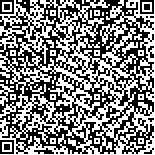| 摘要: |
| [摘要] 目的 探讨职业高中学生的心理健康状况及其与父母养育方式的关系。方法 采用症状自评量表(SCL-90)、父母养育方式评价量表(EMBU)、基本资料问卷,随机整群抽样北海市某职业高中16~18岁学生336名进行问卷调查。结果 心理问题检出率12.4%(38/306)。相关分析表明,SCL-90总分及各项因子分与EMBU的父母亲严厉惩罚、过度干涉、过度保护、拒绝否认、偏爱等项呈正相关;SCL-90总分数及各项因子分与父母亲温暖理解项呈负相关。结论 职业高中学生的心理健康状况与父母养育方式有密切关系,不良的父母养育方式是其心理问题发展的危险因素之一。 |
| 关键词: 职业高中学生 心理健康状况 父母养育方式 |
| DOI:10.3969/j.issn.1674-3806.2010.04.04 |
| 分类号:R 359.1 |
| 基金项目:广西北海市科技局科技基金资助项目(科技攻关200502067) |
|
| Analysis of the relationship between psychological problems in vocational high school students and parental rearing behaviors |
|
JIA Xiao-fei, WANG Ling
|
|
Department of Pediatrics,the Ninth Affiliated Hospital,Gangxi Medical University,Beihai Guangxi 536000,China
|
| Abstract: |
| [Abstract] Objective To explore the relationship between psychological problems in vocational high school students and parental rearing behaviors.Methods It was a cross-sectional study.By means of cluster sampling,336 students aged from 16 to18 years old selected from a vocational high school in Beihai were investigated with Symptom Check List-90 (SCL-90),the Egna Minnen Barndoms Uppfostran ( EMBU) scale and the general formation questionnair.Results The prevalence of psychological problems was 12.4 %(38/306).Correlation analysis showed that the harsh total score and factor-scores of SCL-90 had positive correlation with parental punishment,excessive interference, overprotection, rejection and preference. The total score and factor-scores of SCL-90 was negatively related to parental emotional concern.Conclusion Psychological problems in vocational high school students are closely related to parental rearing behaviors,and incorrect parental rearing behavior is one of the risk factors of psychological problems in the vocational high school students. |
| Key words: Vocational high school students Psychological health status Parental rearing behavior |

